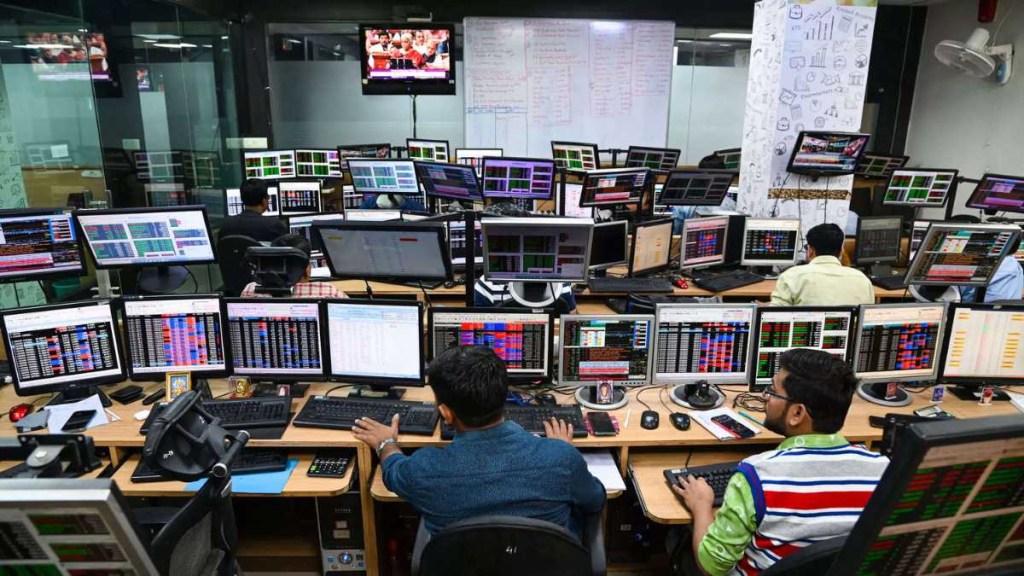Foreign institutional investors (FII) offloaded shares worth net Rs 1,261.19 crore, while domestic institutional investors (DII) added shares worth net Rs 1,380.15 crore on November 2, 2023, according to the provisional data available on the NSE.
For the month till November 2, 2023, FIIs sold shares worth net Rs 3,052.07 crore while DIIs bought shares worth net Rs 1,468.84 crore. In the month of October, FIIs offloaded shares worth net Rs 29,056.61 crore while DIIs added equities worth a net Rs 25,105.86 crore.
“The US Fed maintained a pause on interest rates for the second consecutive time, fuelling expectations that the central bank is done with its interest rate hikes. This led to the US 10-Year bond yields to decline sharply by 27bps to close 1-month low at 4.70%. Apart from positive global cues, healthy Q2FY24 earnings and rise in GST collection boosted the sentiments. With the key event now behind, we now expect market to consolidate with a positive bias along with stock specific action,” said Siddhartha Khemka, Head – Retail Research, Motilal Oswal Financial Services.
Previously on Thursday, the NSE Nifty 50 soared 144.10 points or 0.76% to settle at 19,133.25, while the BSE Sensex added as much as 489.57 points to 64,080.90.
Foreign institutional investors (FII) or Foreign portfolio investors (FPI) are those who invest in the financial assets of a country while not being part of it. On the other hand, domestic institutional investors (DII), as the name suggests, invest in the country they’re living in. Political and economic trends impact the investment decisions of both FIIs and DIIs. Additionally, both types of investors – foreign institutional investors (FIIs) and domestic institutional investors (DIIs) – can impact the economy’s net investment flows.

